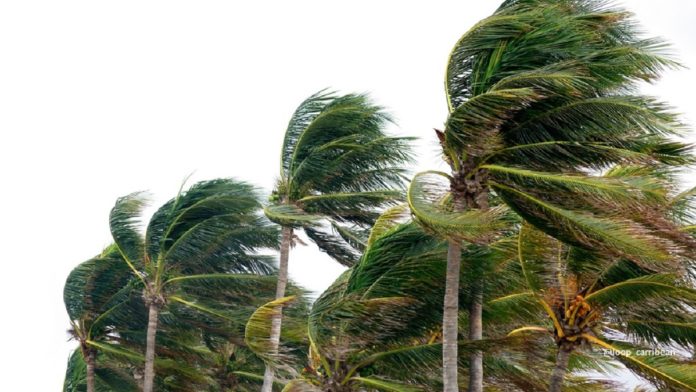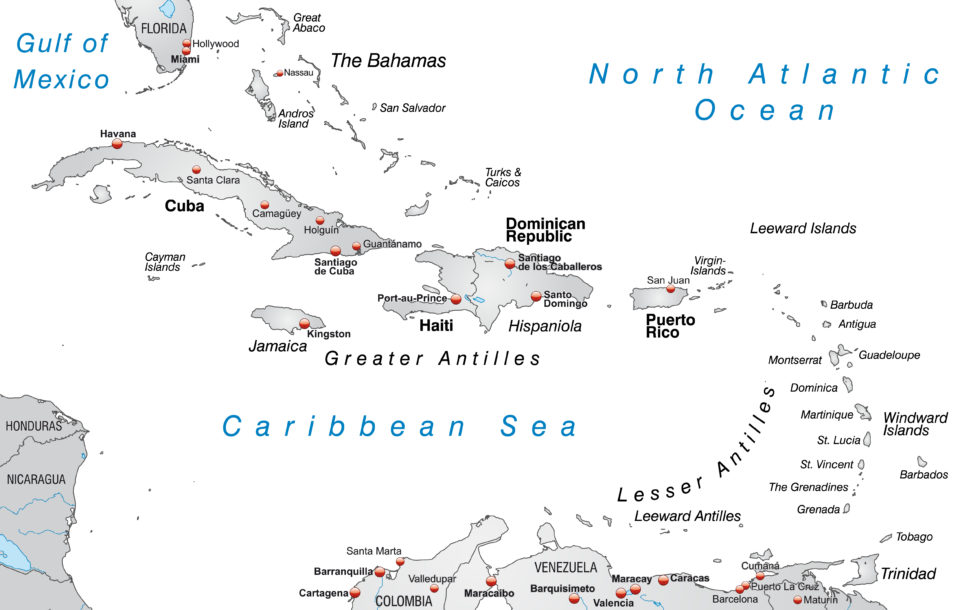
Visiting the British Virgin Islands during the hurricane season can be a high risk high reward endeavour.
On one hand, you can avoid the winter vacation crowds and benefit from lower hotel fares. But visiting the BVI during the hurricane season, which is in the summer or fall can also completely ruin your trip, especially a sailing one.
If you are planning a yacht charter in the BVI, read on what follows before heading straight into the eyes of a Caribbean storm.
Why are the British Virgin Islands in the way of many Caribbean hurricanes?

East of Puerto Rico, in the Caribbean Sea between the Caribbean Sea and the North Atlantic Ocean, are the British Virgin Islands. On the land, there are no bodies of water. There are no land borders. 80 km of coastline are present. It has a tropical, humid environment, with trade breezes regulating the temperature. Its relatively flat topography is mostly made up of coral islets. It is steep and hilly and has volcanic islands. The geographic location of the British Virgin Islands is the main driving force for all hurricane-related factors.
Read also: What are the Windward & the Leeward islands of the Caribbean
It usually starts to get hotter and more humid between June and November, and significant rains are also to be expected, especially in November. Among the months, July, August, and September are the hottest. During this time, the Atlantic is more likely to have tropical depressions, tropical storms, and hurricanes, which could have an impact on leeward islands like the British Virgin Islands.
How often are the British Virgin Islands hit by a hurricane?
The Atlantic hurricane season runs from June to November, and occasionally hurricanes make landfall on the British Virgin Islands. Tropical hurricanes hit the BVI on average around once every eight years for the time period for which relatively trustworthy records are available, but that number includes hurricanes that only impacted the northernmost island of the group.
Hurricanes Irma and Maria destroyed the British Virgin Islands in September 2017, leaving extensive damage. These two hurricanes had a significant impact on the BVI. Mini tornadoes formed inside the cyclone and gusts in excess of 220 mph were measured. This was the most powerful hurricane to ever make landfall in recorded history at the time. The following hurricanes have also affected the islands.
- Hurricane Dorian was the major one that occurred in 2019
- Irma was a category 5 storm and was one of the most powerful hurricane that caused destruction all over northern Caribbean islands in 2017
- Hurricane Earl was a category 2 storm occurred in 2016 and caused fatalities in the islands
- Hurricane Lenny in 1999 was the strongest storm occurring in November since 1932
- Hurricane Jose, occurred in 2017 and was one of the strongest lived Atlantic storm
- Hurricane Georges, it was the 2nd strongest major storm occurring during 1998 hurricane season
- Hurricane Bertha, occurred in 2008 and was one of the strongest lived Atlantic storm during the month of July !
- Hurricane Marilyn, in 1999 was the strongest storm hitting the Virgin Islands since Hugo in 1989
On the subject: BVI vs USVI: which one is for you?
What is the typical season for hurricanes in the BVI?
Typically, the hurricane season in the British Virgin Islands runs from June to November. However, from the middle of August until the end of October, tropical systems or hurricanes are most likely to occur. When booking a boat during hurricane season, please keep in mind that extreme weather, storms, or even a hurricane could cause your trip to be cut short.
For the duration of hurricane season, the majority of crewed yachts and eateries are closed. There’s a decent possibility your weather will be pleasant. However, in the event that a weather system should develop, it is advisable to buy travel insurance. The fact that it is calm and easy to find a snorkel location or anchoring all to yourself at this time of year is undoubtedly a perk.
Read also: How much does it cost to charter a yacht?
How safe is it to travel in the BVI during the hurricane season?
However, anyone who is planning a yacht trip to the British Virgin Islands must keep track of any weather forecasts to be prepared for everything. However, don’t let hurricanes deter you from organizing or taking a yacht excursion! With significant technology advancements, hurricane monitoring can now accurately predict a hurricane’s expected path. The British Virgin Islands are still a secure place to visit, and they are ready to welcome you. It’s also a wonderful chance to get deals on hotels, yachts, villas, day charters, and other accommodations during the off-season.
Read also : What Are The Different Parts Of A Sailboat?
How can you prepare for a hurricane while on holiday in the BVI?
Know before you go. Read up on the local protocols and resources before you depart. Visit the official website of the local weather service for the latest updates and information. Also, download any apps on your mobile that can help you to keep track of the hurricane situation.
Learn about your local radio and news outlets. This will help you keep up with any new updates or information by listening to the news. To stay up to current in real-time, follow regional news outlets on social media or online. Remember that traditional radio stations are the best news sources during a hurricane. BVI Department of Disaster Management here.
Find a person or place to contact. Obtaining phone service, particularly long distance, can be challenging in a hurricane-like situation. Establish a strategy with your traveling buddies for a single, accessible point of contact. This person can assist in communicating important information to everyone involved if you separate.
Pack sensibly. Although you’ll probably know whether or not a hurricane is expected while you’re traveling, pack extra supplies in your suitcase just in case. Make sure your duffel contains, among other things, a battery-operated flashlight, lots of medications, a first-aid kit, antibacterial wipes, a backup battery source, and additional copies of identification and insurance documents.
Understand travel insurance policies and hurricane guarantees. There are many hurricane policies in place based on your provider or insurance. For information on refund and rescheduling procedures related to hurricanes, check with travel or trip operators.
Understand and follow the evacuation protocol. In the event of a hurricane, tourists can be compelled to leave before locals. As soon as the first order to evacuate is made public, abide by it. In case you need to evacuate, be aware of the location of nearby hurricane shelters beforehand.
What should you do if you are on a yacht in the BVI while a hurricane is approaching?
- Choose the location to keep, moor, or anchor your boat properly in the case of a hurricane. Also, check if you need to keep it on land or in water.
- Make a list of all the equipment and supplies you’ll require to get your boat ready for a hurricane, and make sure you have them before the season begins.
- Take a lot of pictures of your yacht in its pre-hurricane state from various perspectives, together with the title or deed, insurance information, mooring permit, and registration details.
- Remove as much stuff as you can from the topside of your ship and keep them below decks or in your lockers.
- Shut, secure, and, if feasible, lock all hatches and apertures.
- Deflate your dinghy and secure it as firmly as you can upside down on your deck.
- Cleaning up the topside and preparing the deck below is also crucial. Your boat will move a lot and in a lot of different directions, so make sure to store everything properly.
- As the boat moves, stow anything that might fall or fly around the cabin. Put everything away safely, and for further protection, tape the doors of lockers and cupboards.
- Make sure that you fully charge your batteries so they can operate the bilge pumps if necessary and last without shore power.
- Ensure that the bilges are running freely and that all of the bilge pumps are in good operating order. Carefully clean and vacuum the bilges to avoid any piling up of debris. This will help you to avoid any type of clogging.
- Before the hurricane, fill up all of your tanks with fuel and water to add weight to your ship and ensure that you have those supplies after it passes.
- Anchor your boat securely and verify it again. During hurricanes, there is a lot of lightning activity, and you don’t want your boat’s electrical system to burn out or any electrical fires to start inside.
- Except for the bilges, which you might need to pump water out to sea, close through hulls.
Does yacht insurance cover hurricanes?
Unless your policy specifically states otherwise, your boat insurer may cover damage to your boat from hurricane-related wind and hail. To find out how you can receive the amount of insurance in the event of a hurricane, contact your boat insurance.
Boat insurance can cover the damage to your boat that happened due to a hurricane. However, policies do not necessarily include it by default. You should examine your policy in advance because there are a variety of exclusions and requirements that could apply to the damage that a hurricane might do to your boat.
Several insurers can protect your yacht from hurricane damage. Some companies may also offer to pay you back for removing your boat from the sea in order to protect it in case of a hurricane.
Read also : 10 Sailing Myths And Bad Advice You Shouldn’t Listen To
Conclusion
A dreamy yacht getaway to the British Virgin Islands can soon turn into a nightmare if you are not aware of the hurricane season in the region. The beauty and enjoyment that the BVI has to offer are more than enough to compensate for the hurricanes. Simply stay informed, have the proper supplies, and stay familiar with the BVI hurricane season for both complete enjoyment and survival during any natural catastrophe.

